At LID Consulting, we are dedicated to fostering a more sustainable built environment. Our expert team offers comprehensive services in assessing both upfront embodied carbon emissions and life cycle carbon emissions for your projects. By integrating these critical evaluations into your development process, we help you reduce environmental impact, achieve sustainability goals, and meet regulatory requirements.
Upfront Embodied Carbon Emissions Assessments
Upfront embodied carbon emissions refer to the total greenhouse gas emissions produced during the material extraction, manufacture, transportation, and construction phases of a building project (Stages A1-A5 on the full lifecycle image below). Understanding these emissions is crucial for reducing the carbon footprint from the outset of your project. Our services include:
- Detailed analysis of materials and construction processes
- Calculation of embodied carbon emissions using industry-standard methodologies (including NABERS Embodied Carbon)
- Recommendations for alternative materials and methods to lower emissions
By identifying and mitigating these emissions early, we assist you in making informed decisions that contribute to a greener built environment.
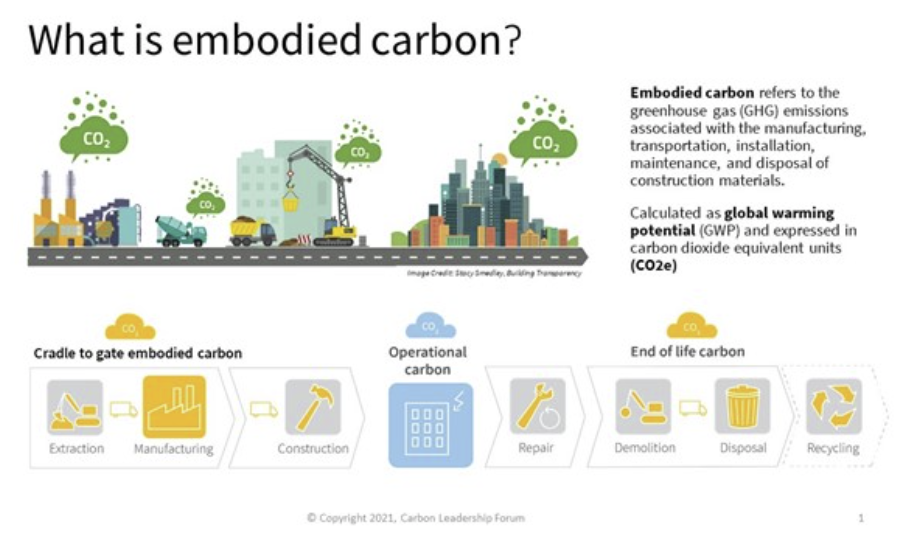
Carbon Leadership Forum 2021 Embodied carbon image
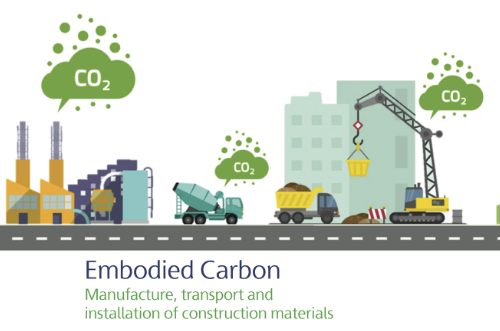
Upfront (construction) embodied carbon
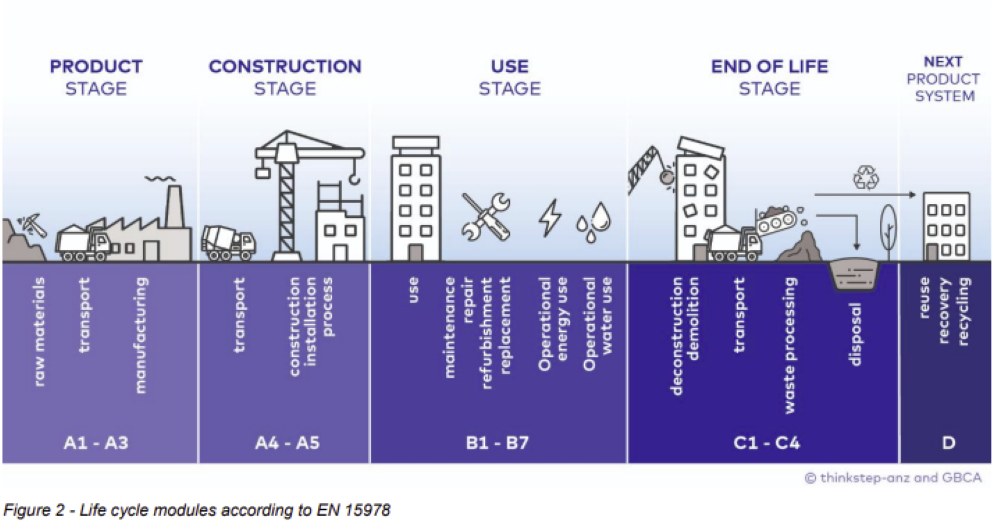
Stages of carbon emissions in a building
Life Cycle Carbon Assessments
Life cycle carbon assessments (LCA) provide a comprehensive view of a building’s total carbon emissions over its entire lifespan—from construction through to demolition and materials recovery (A1-D in the image to the left). Our LCA services include:
- Assessment of emissions during construction, operation, maintenance, and end-of-life phases
- Integration of LCA findings into project planning and development
- Strategies for optimizing the building’s carbon performance over its entire life cycle
Our holistic approach ensures that sustainability is woven into every stage of your project, maximizing environmental benefits and long-term efficiency.
NABERS Embodied Carbon Assessors
We are proud to be accredited NABERS Embodied Carbon Assessors, helping clients across Australia measure and reduce the upfront carbon impacts of their buildings.
Our expertise supports developers, architects, and asset owners in achieving lower embodied emissions through informed material selection, design optimisation, and responsible procurement.
Whether you’re targeting Green Star, meeting government requirements (including the NSW Sustainable Buildings SEPP), or simply aiming to reduce lifecycle carbon, we deliver trusted assessments aligned with the NABERS Embodied Carbon framework.
Let us help you quantify and minimise your project’s embodied carbon for more sustainable, future-ready outcomes.
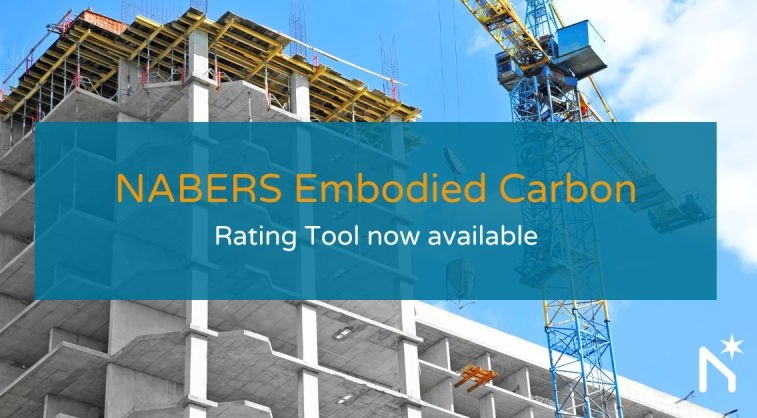
NABERS Embodied Emissions Form and the Sustainable Buildings SEPP 2022
From 1 October 2023, in NSW, all new residential and non-residential developments are required to report on embodied emissions under the Sustainable Buildings SEPP. This policy mandates that applicants disclose the quantities of key materials and the associated embodied emissions at the development application and construction certificate stages, or when applying for a residential complying development certificate.
To accommodate different development types, two reporting methodologies have been tailored:
- Residential Developments: The new BASIX Materials Index is integrated with the BASIX online tool to streamline measurement and reporting for residential projects.
- Non-Residential Developments: The NABERS Embodied Emissions Tool will be the required format for reporting when the NABERS framework is released in mid-2024. In the interim, developers must complete the NABERS Embodied Emissions Materials Form.
The Sustainable Buildings SEPP specifically targets upfront embodied emissions, often referred to as cradle-to-gate emissions or stages A1-A3 of a building’s life cycle. This focus ensures that the environmental impact of material extraction, manufacture, and transportation is accounted for and mitigated from the very beginning of the building process.
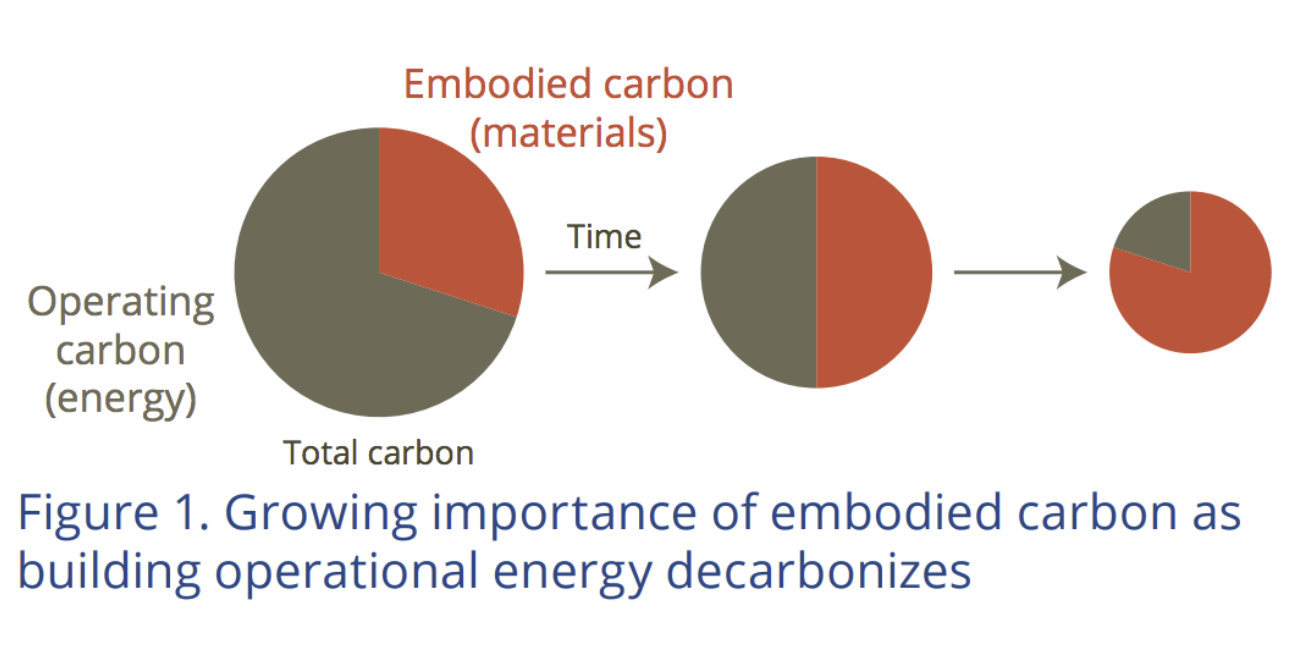
Growing importance of upfront embodied carbon – Pembina Institute slide
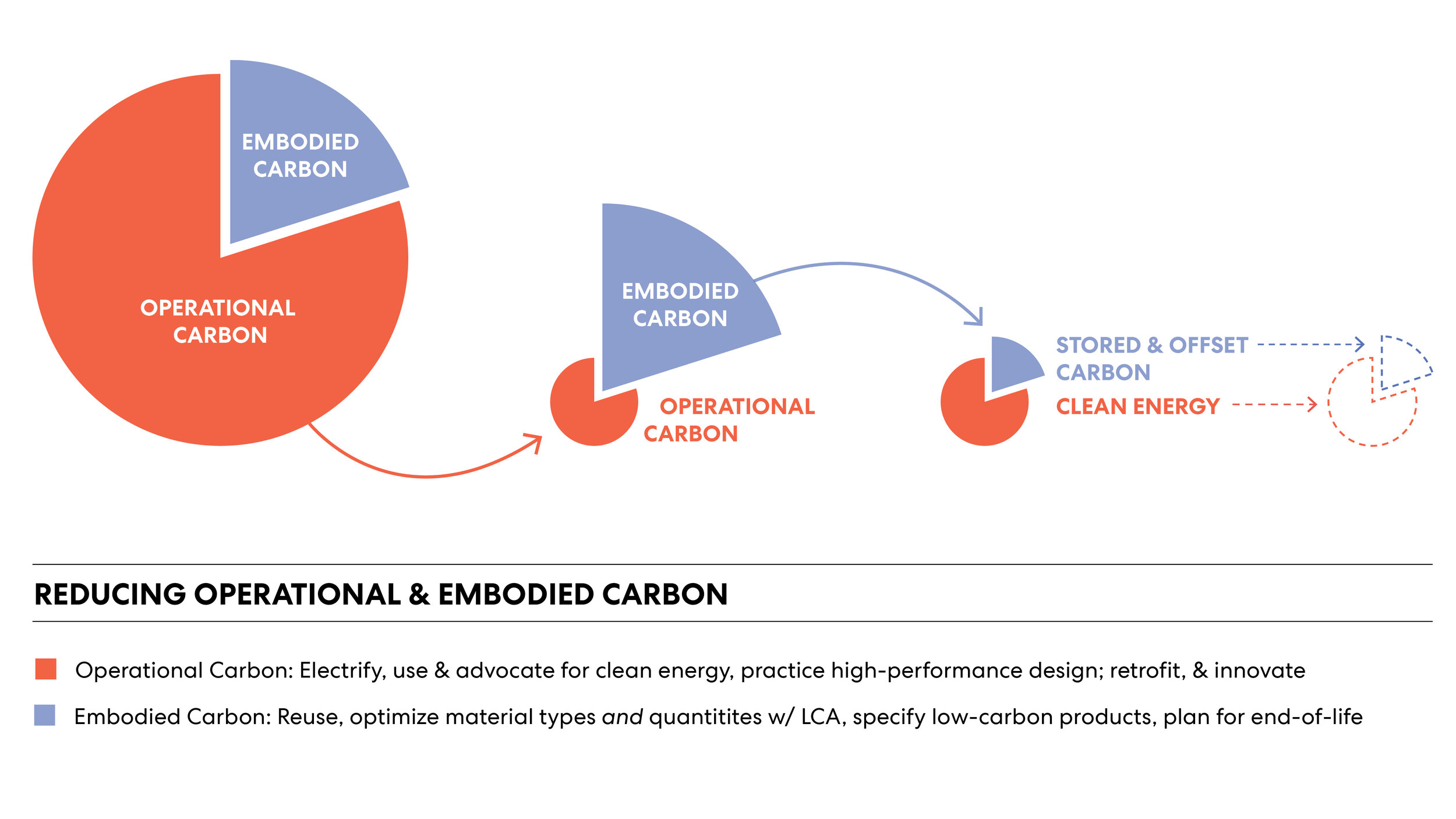
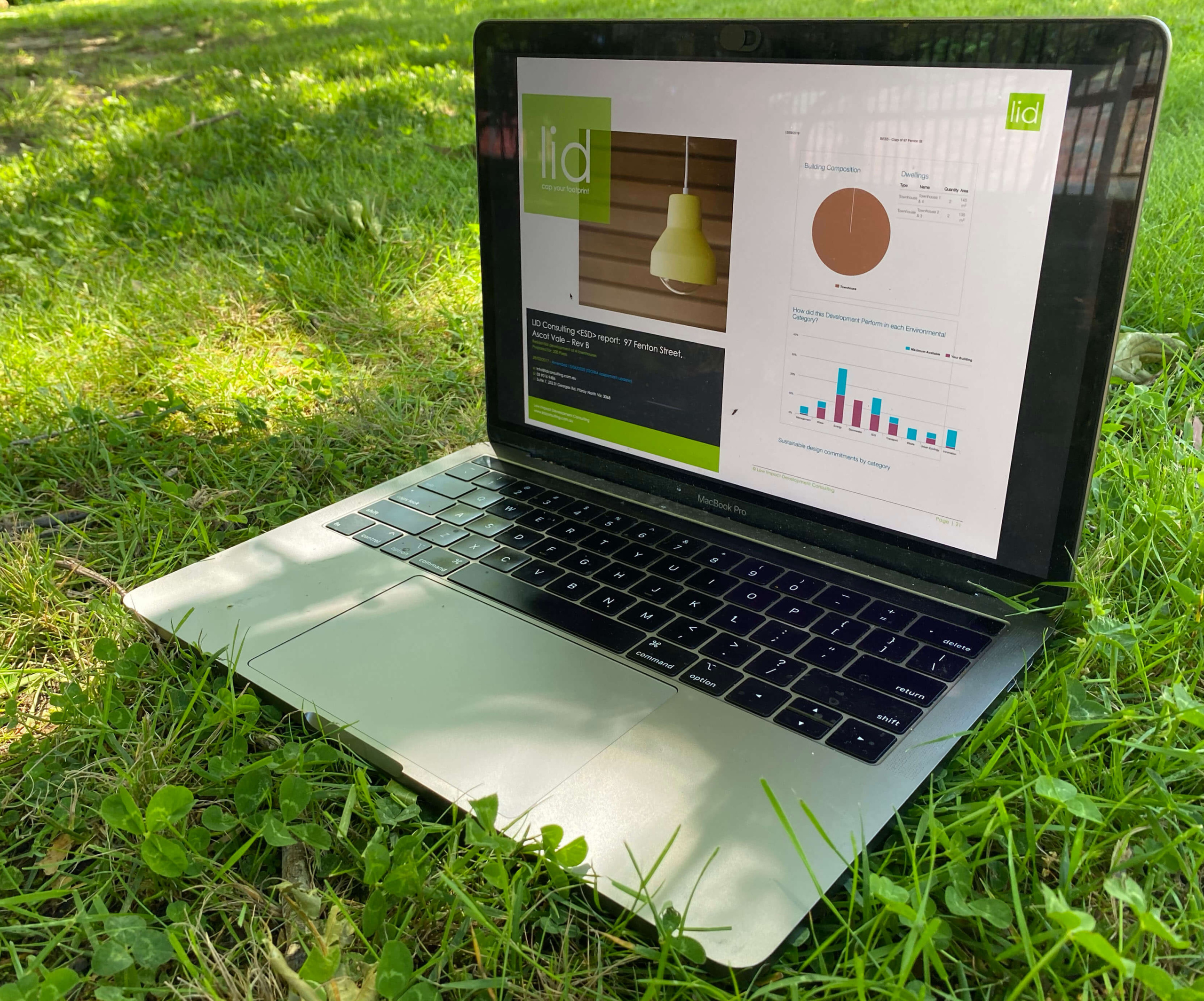
Why Choose LID Consulting?
At LID, we are passionate about creating sustainable solutions for the built environment. Our team combines technical expertise with a commitment to innovation, ensuring that your projects not only meet but exceed environmental standards. By partnering with us, you gain access to:
- Customized sustainability strategies tailored to your project’s needs
- Support in achieving or going beyond regulatory compliance and certifications
- Insights that drive down costs while boosting environmental performance
Join us in building a greener future. Contact us today to learn more about our services and how we can help your project achieve its sustainability goals.
Please contact us if you would like a quote for your development project. We will generally turn around quotes within 24 hours.

